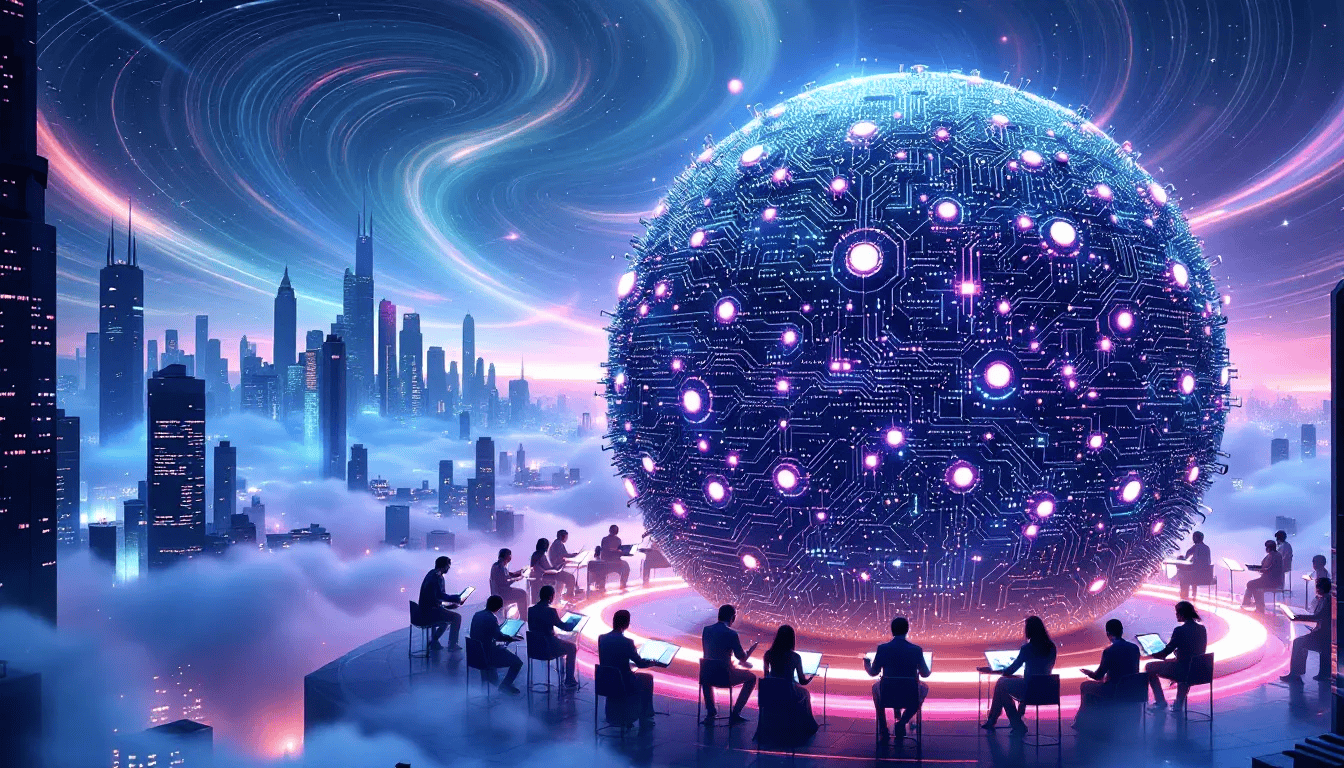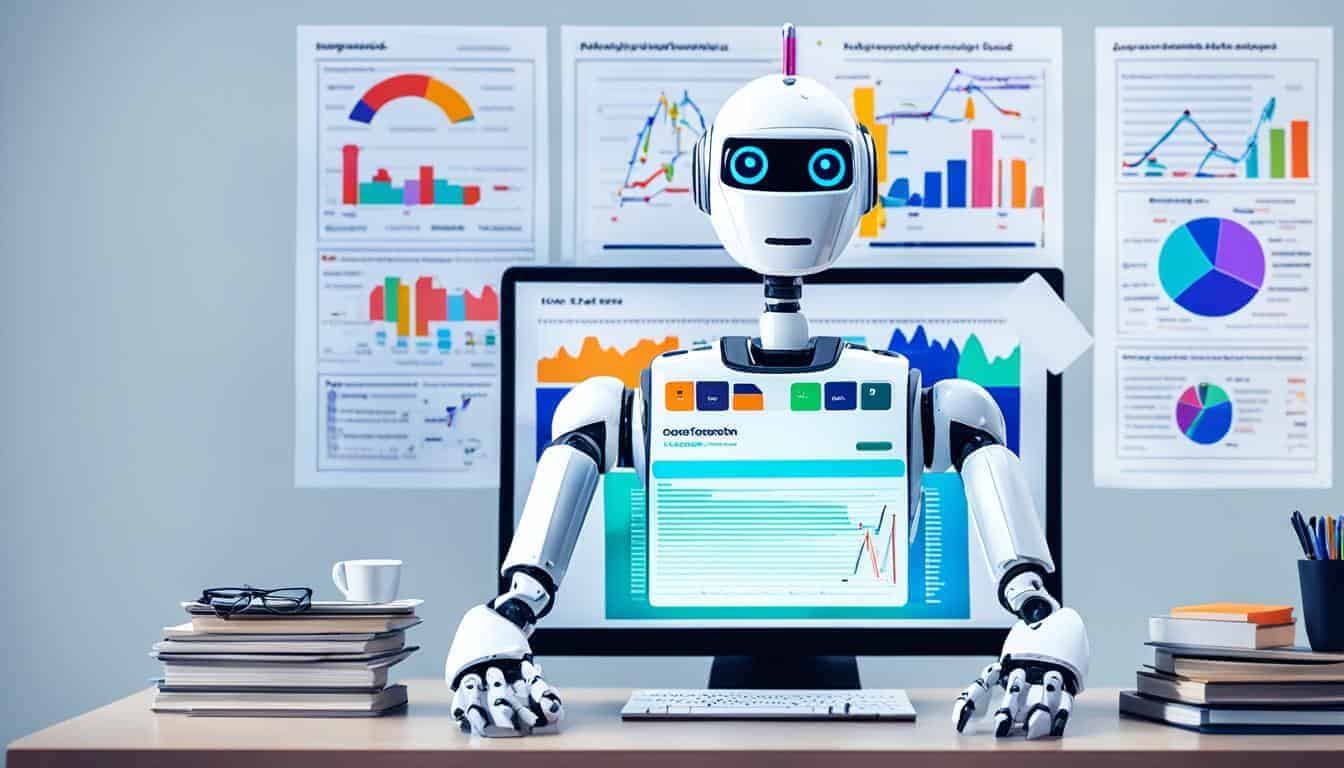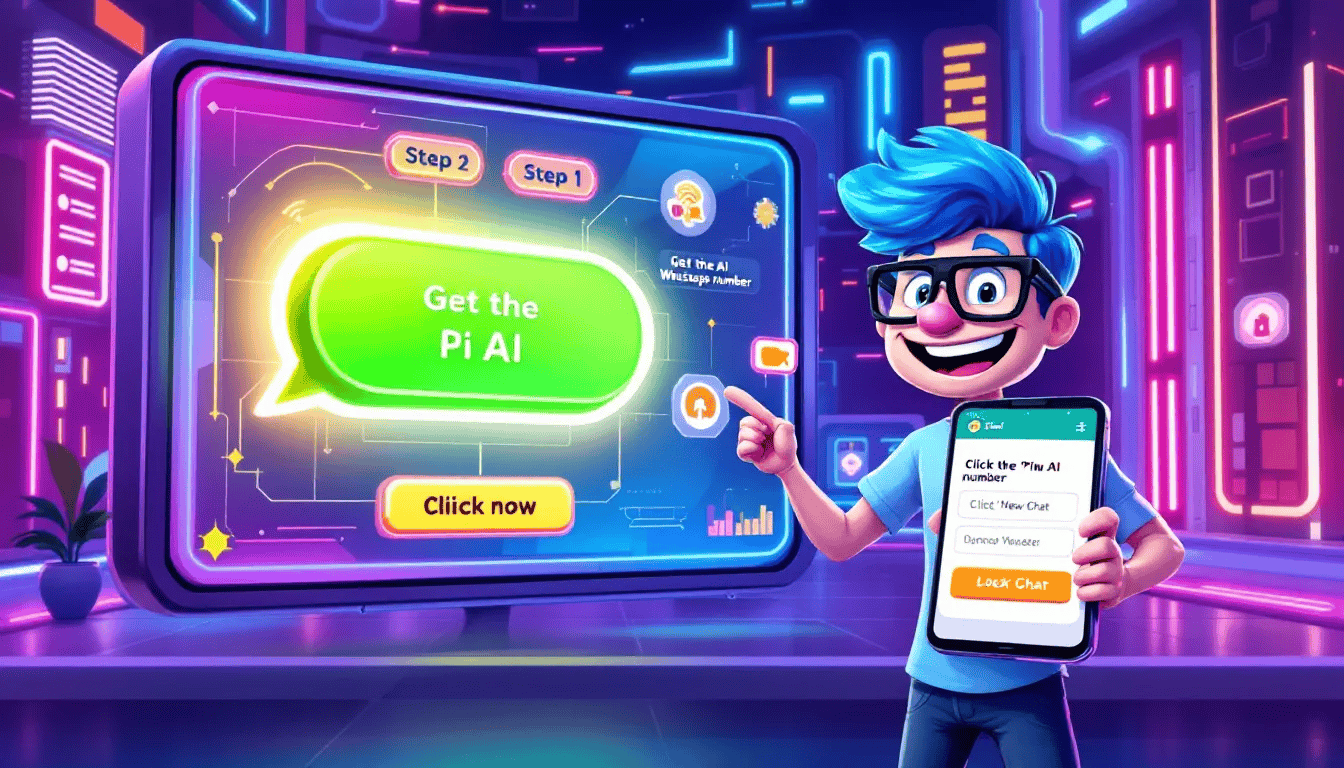How AI Music is Generated? Inside the Creative Process

AI music is generated using machine learning to analyze music and create new compositions. In this article, we will explore how is AI music generated, covering the technologies, the creation process, and AI’s impact on the music industry.
Key Takeaways
AI music generation utilizes algorithms and machine learning to analyze musical data, creating original compositions while significantly transforming the music composition and production process.
Key technologies such as deep learning, neural networks, and Generative Adversarial Networks (GANs) are central to AI music generation, enabling the analysis of complex patterns and the production of high-quality music.
Despite its advantages, AI-generated music faces challenges, including questions of originality, cultural bias in training data, and ethical considerations regarding ownership and the potential displacement of human musicians.
Understanding AI Music Generation
AI music generation employs sophisticated algorithms and computer programs to create music, fundamentally transforming how we approach music composition and production. At its core, AI in music generation involves analyzing vast amounts of musical data to learn patterns and structures, which are then used to produce original compositions. AI can generate melodies, harmonies, and even entire songs, often with minimal human intervention.
The journey of AI-generated music began as early as 1956, marking the first instance of a computer composing music. One notable example is David Cope’s ‘Emmy’, an AI designed to create original compositions in the style of classical composers. Today, generative AI has the potential to match the works of great human composers and even create entirely new genres. However, it’s important to note that while AI can generate music by mixing and matching from its training data, it cannot experiment beyond the boundaries of what it has learned.
Despite its limitations, AI significantly impacts the creative process, enabling new ways to compose and produce music. Machine learning algorithms and deep learning networks enable AI music generators to analyze existing music, identify patterns, and generate new compositions that push the boundaries of traditional music creation. This technological leap offers exciting possibilities for musicians of all levels, making music creation more accessible and innovative than ever before.
The Role of Machine Learning in Music Creation
Machine learning plays a pivotal role in AI music generation, enabling computers to create music by analyzing large datasets of existing compositions. These algorithms can identify and learn patterns, styles, and structures from vast musical databases, allowing AI music generators to produce new, original pieces. AI systems can generate music that closely mimics human-created compositions by understanding elements such as pitch, harmony, rhythm, and timbre.
Machine learning’s primary advantage in music creation is its ability to generate original melodies and rhythms with limited human intervention. This not only streamlines the music production process but also opens up new avenues for creativity. For instance, AI music generators can emulate specific styles or produce entirely new compositions based on the learned patterns from existing music.
This capability enhances the creative process by providing musicians with fresh material and innovative ideas, freeing them from repetitive tasks.
Key Technologies Behind AI Music

At the heart of AI music generation are several key technologies that enable the creation of high-quality music. Advancements in AI music software have played a crucial role in the development of these technologies, enabling more sophisticated and human-like music generation. Deep learning, neural networks, and generative adversarial networks (GANs) are among the most influential technologies in this field. These techniques enable AI systems to analyze complex musical patterns and generate new compositions that are both innovative and musically coherent.
Deep learning techniques involve training AI music generators on extensive datasets of existing music, enabling them to recognize intricate patterns and structures. Neural networks, particularly convolutional and recurrent neural networks, mimic the human brain’s pattern recognition capabilities, making them ideal for processing and generating music.
Additionally, GANs utilize a dual network structure to create high-quality music through a competitive process between a generator and a discriminator. These technologies collectively push the boundaries of what AI can achieve in music creation.
Deep Learning Techniques
Deep learning has revolutionized AI music composition by enabling the analysis of complex patterns in musical data. This technology employs artificial neural networks designed to replicate brain operations, thus mimicking human brain functions in music generation. Training on large datasets allows deep learning models to identify and analyze patterns and structures essential for generating new compositions.
These models utilize multi-layered neural networks to model intricate relationships in musical data, leading to more accurate and nuanced music output. As these models train on more data, they improve at imitating existing musical styles and creating new music infused with emotional tone or genre characteristics.
This capability allows deep learning to play a key role in developing AI music systems that produce high-quality, emotionally resonant music.
Neural Networks in Music Generation
Neural networks are a cornerstone of AI music generation, mimicking the human brain’s ability to recognize patterns and process sequential data. Convolutional Neural Networks (CNNs) are particularly effective for feature extraction, identifying significant musical elements from datasets. Meanwhile, Recurrent Neural Networks (RNNs) are well-suited for handling sequential data, making them ideal for processing the temporal aspects of music.
Deep learning models use these neural networks to extract and identify significant features from musical datasets, enabling them to generate new, high-quality compositions. This capability allows AI systems to create pieces that are innovative and musically coherent, bridging the gap between human and machine creativity.
Generative Adversarial Networks (GANs)
Generative Adversarial Networks (GANs) are a powerful tool in AI music generation, utilizing a dual network structure to create high-quality music. In this setup, one network, the generator, creates music, while the other, the discriminator, evaluates it. This competitive process drives the generator to produce increasingly better music, as it aims to fool the discriminator.
The use of GANs significantly enhances the quality of generated music by fostering a continuous improvement cycle between the generator and the discriminator. This method not only improves the musical output but also pushes the boundaries of what AI can achieve in music creation, leading to more sophisticated and polished compositions.
Steps in Creating AI-Generated Music

Creating AI-generated music involves a series of straightforward steps that leverage the power of AI to produce original compositions quickly and efficiently. The process begins with analyzing datasets and applying patterns to make predictions, followed by data preprocessing, which is a critical initial step. This analysis allows AI music generators to identify patterns and structures in existing music, which are then used to generate new compositions.
AI music tools can assist in music production tasks like mixing and mastering, enhancing sound quality and efficiency.
Choosing an AI Music Generator
Selecting the right AI music generator is crucial for achieving the desired musical outcome. Factors to consider include user experience, the specific features offered by the generator, and the genres it supports. Some AI music generators are tailored for specific types of music. For example, Soundful allows users to manipulate tracks based on BPM and key, and select from over 50 templates.
The user interface is another important consideration, with many AI music generators offering intuitive interfaces with sliders and dropdown menus for ease of input. Evaluating these features can help users choose an AI music generator that best suits their needs and creative vision, making the music creation process more efficient and enjoyable.
Inputting Musical Parameters
Inputting specific musical parameters is a crucial step in using AI music generators to create music. Parameters such as tempo, key, and genre significantly influence the generated music’s style and feel. Experimenting with these settings allows users to customize their compositions, reflecting their unique artistic vision.
AI music generators like Boomy and Soundful offer extensive customization options, allowing users to adjust tempo, key, and select from various genres, instruments, and moods. These tools often feature user-friendly interfaces with sliders or dropdown menus, facilitating experimentation with different settings and creating unique musical compositions.
Generating and Refining Music
Once the musical parameters are set, AI music generators can produce compositions in seconds to several minutes. Users can listen to the generated music and provide feedback to refine and improve the composition. This iterative process ensures continuous enhancement of the generated music, meeting the user’s expectations.
AI-generated music can also be combined with human musicianship to create polished final compositions. For example, platforms like Boomy offer pre-generated loops and samples that users can customize further, adding live instrumentation or melodies to the AI-generated foundation. Integrating AI and human creativity results in high-quality music that reflects both technological innovation and artistic expression.
Music Generation Techniques and Styles

AI music generators have revolutionized the way we create music, offering a diverse range of musical styles and techniques. These advanced tools can produce everything from classical symphonies to modern pop hits, jazz improvisations to electronic dance music (EDM) tracks. The versatility of AI music generation is largely due to the sophisticated techniques employed, such as deep learning, neural networks, and generative adversarial networks (GANs).
One of the key strengths of AI music generators is their ability to create music in various formats, including MIDI files, WAV files, and even sheet music. This flexibility allows musicians and producers to integrate AI-generated music seamlessly into their workflows. For instance, Amper Music specializes in creating music for video and advertising, providing users with tailored compositions that enhance their visual content. On the other hand, platforms like AIVA can produce music across multiple styles, from classical to pop, catering to a wide range of musical tastes and needs.
AI music generators are also adept at crafting music for specific moods or emotions. Whether you need relaxing background music for a spa or an energetic playlist for a workout session, these tools can deliver compositions that perfectly match the desired ambiance. The continuous improvement in AI algorithms ensures that the quality and diversity of AI-generated music are always advancing, offering users an ever-expanding palette of sounds and styles.
Moreover, AI music generators can be used in collaboration with human musicians, creating a synergy that blends the precision of technology with the emotional depth of human creativity. This collaborative approach can lead to innovative and unique musical works, pushing the boundaries of traditional music creation.
Popular AI Music Generators

Many AI music generators have become popular recently. They can create new musical pieces, remix existing songs, and generate accompaniment. These tools combine various technologies to offer a seamless music creation experience, catering to both novice and professional musicians. Notable AI music generators include AIVA, Boomy, and Soundful, each with unique features and capabilities.
These AI music generators enable users to produce high-quality music quickly and efficiently, democratizing music creation and making it accessible to a broader audience. The following subsections offer an overview of these popular tools and their functionalities.
AIVA
AIVA (Artificial Intelligence Virtual Artist) is a powerful AI music composition platform designed for creating original music. It is widely used in projects ranging from soundtracks for films and games to background music for presentations and videos. AIVA enables users to generate music that can be further customized using the platform’s tools, providing flexibility and creative control over the final output.
To start using AIVA, users need to create an account, then they can begin generating music tailored to their specific needs. The platform’s user-friendly interface and advanced AI algorithms make it an excellent choice for anyone looking to harness the power of AI in music creation.
Boomy
Boomy is an AI music generator available for both Mac and Windows operating systems, known for its user-friendly interface that simplifies the music creation process. It features a built-in drum machine and synthesizer, allowing users to customize tempo and key, and offers a wide range of sounds and effects.
This combination of ease of use and a rich sound library makes Boomy accessible for users looking to create music that reflects their unique creative vision.
Soundful
Soundful is designed as an AI music generator that enables users to create royalty-free music with ease. It offers real-time music production features such as automatic beat matching and intelligent melody generation, enabling users to produce high-quality music quickly and efficiently.
Soundful’s capabilities make it an excellent choice for content creators aiming to enhance their projects with custom-made audio.
Advantages of AI-Generated Music

AI-generated music offers numerous advantages, significantly enhancing the music creation process. One of the primary benefits is the time efficiency it provides, allowing musicians to generate new compositions in a matter of minutes. Automation of production tasks allows musicians to focus more on the creative aspects of music rather than technical details, fostering a more innovative and productive environment.
Additionally, AI democratizes music creation by making it accessible to a broader audience. Novice musicians can experiment and create music without extensive knowledge, while professionals benefit from AI’s ability to handle repetitive tasks and generate unique ideas.
AI music generators also enhance creativity by blending various genres and sounds, encouraging musicians to explore new musical horizons.
Challenges and Criticisms
Despite its advantages, AI-generated music faces several criticisms and challenges. Critics argue that AI-generated music often lacks originality and creativity, as it mainly relies on analyzing and recombining existing musical elements. This limitation can result in compositions that may not convey the complex emotions and genuine feelings that human musicians can express through their art.
Another significant concern is the potential cultural biases present in AI training data, which can lead to a narrow representation of diverse musical cultures. Additionally, reliance on established popular formulas by algorithms could result in sound homogenization, stifling innovation and diversity in music.
These challenges underscore the need for careful consideration and ongoing refinement of AI music generation technologies.
AI Music in the Music Industry
The integration of AI-generated music into the music industry is poised to have a profound impact. The global market for AI in music is expected to grow significantly, reflecting rising interest in machine learning applications in music creation. However, this trend raises concerns about potential job loss for human musicians and the compromise of artistic integrity.
On the positive side, AI tools can provide artists with fresh material by analyzing existing compositions and generating new music. These tools enhance music promotion by automating campaigns, improving reach and efficiency for artists. As AI technology continues to evolve, it could lead to the creation of entirely new genres and innovative remixing techniques, further enriching the musical landscape.
Ethical Considerations
The rise of AI-generated music brings several ethical considerations to the forefront. One of the most pressing issues is the ambiguity surrounding the ownership and rights to AI-generated compositions. Questions about who owns the rights—whether it’s the AI developer, the software operator, or another entity—remain legally unresolved.
Moreover, there are concerns about the potential displacement of human musicians and the perceived value of human artistry. AI in music creation could lead to reduced creativity and authenticity, as AI systems may mimic existing works too closely. These ethical dilemmas underscore the need for clear regulations and guidelines to navigate the complexities of AI-generated music.
Tips for Utilizing AI Music Generators
Harnessing the power of AI music generators can significantly enhance your music creation process. Here are some practical tips to help you get the most out of these innovative tools:
Experiment with Different Generators: Each AI music generator has its unique strengths and features. Experiment with various tools to find the one that best suits your needs and creative style. Platforms like Boomy, AIVA, and Soundful each offer distinct capabilities that can cater to different musical projects.
Start Simple: Begin with basic parameters such as tempo, key, and genre. As you become more comfortable with the tool, gradually introduce more complexity into your compositions. This step-by-step approach allows you to understand how different settings affect the generated music.
Spark Creativity: Use AI music generators as a source of inspiration. They can provide fresh ideas and new perspectives, helping you overcome creative blocks. However, don’t rely solely on AI; blend its output with your own creativity to produce truly unique music.
Combine AI with Human Musicianship: AI-generated music can serve as a foundation upon which you can build. Add live instrumentation, vocals, or other elements to infuse the music with emotional depth and nuance that only human musicians can provide.
Stay Open-Minded: AI music generators can sometimes produce unexpected results. Embrace these surprises and use them as opportunities to explore new musical directions. Keeping an open mind can lead to innovative and exciting compositions.
Project-Specific Music: Tailor your use of AI music generators to specific projects. Whether you’re creating a soundtrack for a video, an advertising jingle, or a personal music project, these tools can help you produce music that perfectly fits the context.
Engage with Online Communities: Join forums and online communities dedicated to AI music generation. Sharing your experiences and learning from others can provide valuable insights and tips, enhancing your use of these tools.
Stay Updated: The field of AI music generation is rapidly evolving. Keep up with the latest developments and advancements to ensure you’re using the most current and effective techniques and algorithms.
By following these tips, you can effectively utilize AI music generators to enhance your music creation process, blending the best of technology and human creativity to produce outstanding musical works.
Future of AI Music Generation

The future of AI music generation looks promising, with advancements in technology continually pushing the boundaries of what AI can achieve in music creation. Generative AI is increasingly used to produce original compositions, marking a milestone in music technology. As AI tools become more sophisticated, they are expected to create complex and unique pieces that rival those composed by human musicians.
AI-generated music is poised to reshape the music industry, making music creation more accessible and diverse. Integrating AI with virtual reality and augmented reality could create new interactive music experiences, further enhancing how we experience and engage with music.
The evolution of AI in music presents exciting possibilities for the future, promising to redefine the boundaries of musical creativity.
Summary
In conclusion, AI-generated music represents a remarkable convergence of technology and creativity, offering new methods and tools for music creation. From the fundamental principles of AI music generation to the advanced technologies and ethical considerations, this guide has explored the multifaceted nature of AI in music. The potential for AI to democratize music creation, foster innovation, and redefine the music industry is immense.
As we look to the future, the collaboration between AI and human creativity promises to open new avenues for artistic expression. The continued advancement of AI technology will undoubtedly shape the music landscape, inspiring both seasoned musicians and newcomers to explore the limitless possibilities of AI-generated music.
Frequently Asked Questions
q. What is AI-generated music?
AI-generated music refers to compositions created by algorithms and computer programs that analyze musical data to generate original pieces, typically with limited human involvement. This innovative approach leverages technology to expand the possibilities of musical creation.
q. How does AI generate music?
AI generates music by analyzing patterns and structures in extensive datasets of existing music, employing machine learning and deep learning techniques to compose new pieces.
q. What are the advantages of AI-generated music?
AI-generated music is advantageous due to its efficiency in time and cost, as well as its ability to seamlessly blend diverse genres and sounds, thereby broadening accessibility for creators.
q. What are the ethical concerns surrounding AI-generated music?
The ethical concerns surrounding AI-generated music primarily involve unclear ownership rights, the potential displacement of human musicians, and the risk of diminishing creativity and authenticity. Such issues highlight the need for careful consideration in the integration of AI in the music industry.
q. What is the future of AI music generation?
The future of AI music generation is poised for significant advancements, leading to more sophisticated compositions that could transform the music industry and elevate interactive music experiences. This evolution will likely redefine how music is created and consumed.


